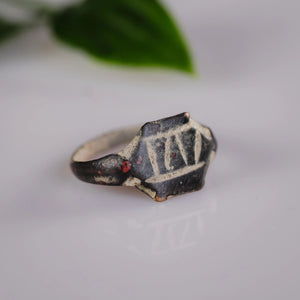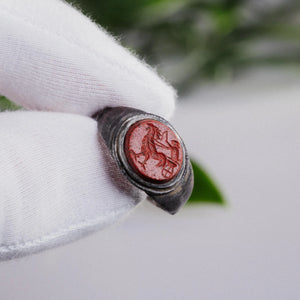Interesting facts
Are Crossbows Legal in the US? Exploring Crossbow Laws and Hunting Regulations Nationwide
If you’ve ever wondered about the legal status of crossbows in the United States, you’re not alone. The allure of the crossbow—with its blend of tradition and modern engineering—has grown among hunters and sports enthusiasts alike. But as with many tools designed for hunting or shooting sports, legality isn’t always straightforward. It often depends on where you live, what game you hunt, and even specific conditions like physical ability or seasonal restrictions.
Crossbows occupy a unique place in American hunting culture. They offer a quieter, more precise alternative to firearms and can be easier to use for people who may find bows or rifles challenging. Yet, their power and effectiveness raise important questions about regulation. How do laws around crossbows vary? Are there states where using a crossbow is off-limits? And what should a hunter know before heading out into the field with one?
For enthusiasts interested in historical and unique artifacts alongside their hunting gear, Aurora Antiqua offers a remarkable collection worth exploring. Their artifacts provide a sense of history and connection to the past, enriching the experience of any hunting enthusiast. You can find diverse highlights of their collection at this link. In addition to your hunting pursuits, connecting with the past through such artifacts can be a fulfilling endeavor.
Let’s navigate the complex but fascinating landscape of crossbow legality in the US—a journey that touches on history, state regulations, hunting ethics, and practical advice for enthusiasts.
The Historical Backdrop of Crossbow Use in America
Crossbows aren’t a new invention. Originating in ancient warfare, they have evolved over centuries into sophisticated hunting apparatuses. In America, their role has traditionally been eclipsed by firearms and longbows. But as hunting communities looked for more accessible options, particularly for aging or disabled hunters, crossbows gained renewed attention.
This resurgence brought legal questions to the fore. For decades, many states either banned or heavily restricted crossbow use for hunting, seeing them as giving hunters an unfair advantage or raising safety concerns. Over time, however, attitudes shifted, largely because modern crossbows require skill and still preserve the challenge of the hunt. The result is a patchwork of laws reflecting local wildlife management priorities, cultural attitudes, and safety considerations.
Beyond their historical use, crossbows have a certain allure due to their mechanical sophistication. Modern crossbows can deliver bolts at high velocities with impressive accuracy, making them a favored choice for both newcomers and seasoned hunters who appreciate a blend of old-world technique and new-world efficiency. The gradual acceptance of these weapons mirrors how technological evolution often reshapes cultural practices—balancing tradition with innovation in the ongoing story of American hunting.
State-by-State Variations: No One-Size-Fits-All Approach
One of the most striking features of crossbow laws in the US is how much they vary from state to state. While the federal government doesn’t directly regulate the use of crossbows for hunting, individual states enact their own rules concerning their legality, seasons when they can be used, and who qualifies to use them.
For instance, many states allow crossbows to be used during the general hunting season—the main period when hunting specific game like deer or elk is permitted for all hunters. Others make a distinction between archery season and firearms season, sometimes allowing crossbow use in one but not the other. Some states reserve crossbow hunting rights exclusively for disabled individuals or senior hunters.
To illustrate this, consider these examples:
- Pennsylvania: Crossbows are legal for hunting during archery season without restriction, making it a popular choice among deer hunters.
- New York: Only hunters with a qualifying disability can use crossbows during the archery season; others must wait for the regular firearms season.
- Texas: Allows broad use of crossbows during regular hunting seasons, reflecting its generally permissive hunting laws.
- California: Generally prohibits crossbow use during archery season but permits it for disabled hunters.
Such distinctions aren’t just fine print; they impact how people plan their hunts and comply with state wildlife rules. For hunters who travel across state lines or who live near borders, understanding these nuances is crucial to avoid legal troubles. Imagine planning a deer hunt trip only to find out upon arrival that your favored weapon is off-limits—this can lead to frustration and fines, detracting from the experience.
Moreover, for readers curious about more detailed insights into crossbows, a comprehensive article on the history and development of crossbows not only enhances understanding but also aligns with pursuits related to sports and hunting gear today.
Why Do States Have Different Rules?
You might wonder why there isn’t a uniform policy. Wildlife management is inherently local. Each state’s natural environment, animal populations, hunting pressures, and cultural traditions influence how hunting tools are regulated. For example, states with dense deer populations might regulate crossbows differently to balance conservation goals with hunter access.
Moreover, the effectiveness of crossbows has improved dramatically with technology, necessitating that regulations evolve. States have to weigh safety concerns—after all, crossbows can shoot bolts at high speeds—with ensuring fair hunting opportunities that don’t disrupt wildlife management objectives.
Take, for example, a state with fragile wildlife populations facing pressure from increasing hunter numbers. Its wildlife agency might restrict crossbow hunting to disabled hunters or specific seasons to prevent overharvesting. Conversely, states with abundant game might allow broader crossbow use to support hunting as a wildlife management tool and cultural pastime.
Cultural attitudes also play a role. In some regions, hunters prize traditional archery or firearms methods and might view crossbows as a shortcut, prompting tighter restrictions. Elsewhere, crossbows are embraced for offering opportunities to hunters who might otherwise be sidelined due to physical ability or age.
This patchwork approach means that staying informed is key—not just about legality but also about the broader values and goals that shape hunting regulations in each place. It leads to a richer understanding of hunting as a discipline intertwined with ecology, culture, and community.
Legal Implications: When Is It Legal to Hunt with a Crossbow?
If you’re considering hunting with a crossbow, it’s essential to take the legal landscape seriously. Hunting regulations govern not just the tool used but also the timing, species, and licensing requirements.
What are some considerations for ensuring you comply with crossbow hunting regulations in different states?
To comply with crossbow hunting regulations, hunters should secure appropriate licenses, consult updated regulations from state wildlife agencies, attend safety and crossbow-specific courses, and review equipment lists and hunting season dates closely. It’s vital to keep informed about changes and respect ethical hunting standards to avoid legal issues and contribute positively to conservation efforts.
Most states require hunters to have valid licenses and adhere to specified seasons for each game species. The legality of crossbow use folds into this framework. In many places, the crossbow is treated the same as a compound bow during archery season, while elsewhere it falls under different categories.
Additionally, some states implement age restrictions or mandate hunter education courses specific to crossbow use. Others request that crossbow hunters use certain types of bolts or limit draw weights for safety.
Ignoring these rules can lead to fines, hunting privileges being revoked, and even criminal charges. Beyond legal compliance, respecting regulations helps preserve wildlife populations and the hunting tradition for future generations.
For example, consider a novice hunter excited to use a powerful crossbow during the early archery season in a state where this is prohibited. Without checking the specifics, they risk heavy penalties, which could include steep fines or loss of hunting licenses—something that could dampen their enthusiasm permanently.
Moreover, ethical hunting goes hand in hand with legality. Weapons and methods that respect fair chase principles also align with legal standards meant to balance human activity with wildlife conservation.
Therefore, before setting out, hunting enthusiasts should:
- Secure appropriate hunting licenses.
- Consult up-to-date hunting regulations from official state wildlife agencies.
- Attend hunter safety and crossbow-specific courses where available.
- Review acceptable equipment lists and hunting seasons closely.
This preparation not only ensures legal compliance but fosters a mindset of responsibility towards wildlife and fellow hunters.
Crossbows and Disability Accommodations: A Closer Look
One important driver of crossbow legality has been accessibility. Hunters with disabilities often find traditional bows difficult or impossible to use. Recognizing this, many states have carved out exceptions allowing disabled individuals to hunt with crossbows even during archery seasons when others cannot.
These provisions are not mere allowances but reflect a broader commitment to inclusivity in outdoor recreation. Often, hunters must provide medical documentation to qualify and may need special permits.
This aspect of crossbow law emphasizes hunting as a pastime and tradition that can adapt to diverse physical abilities without compromising ethical standards or wildlife stewardship.
This inclusivity aligns with a growing understanding that outdoor pursuits such as hunting should welcome all who seek to participate. It’s more than policy; it’s a statement of values, supporting the idea that physical limitations need not close the door to time-honored traditions.
Moreover, enabling disabled hunters to use crossbows can enhance their connection to nature and community, fostering well-being and social engagement. Many states facilitate these accommodations through straightforward application processes and outreach programs, highlighting the importance of accessibility in hunting.
However, the responsibility remains to ensure these exceptions are applied fairly and that standards of safety and ethics remain strong, maintaining trust and respect across hunting communities.
Practical Tips for Complying with Crossbow Laws
Navigating hunting laws can be daunting, especially when you travel or hunt in multiple states. Here are some steps that can help ensure your crossbow adventures remain above board:
- Consult Your State Agency: The wildlife or natural resources department website usually offers comprehensive hunting regulations and updates on crossbow use. Bookmark these pages and check them before each hunt.
- Review License Requirements: Obtain the necessary hunting licenses and check if a special crossbow permit is required. Some states separate crossbow permits from general hunting licenses.
- Study Season Dates and Limits: Different game species may have distinct seasons when crossbow hunting is permitted. Avoid hunting outside those windows.
- Understand Equipment Restrictions: Confirm allowed crossbow models, draw weights, and bolt specifications to avoid surprises. Some states stipulate maximum draw weights or prohibit scopes beyond a certain magnification.
- Consider Hunter Education Courses: Some states require or recommend specific training covering crossbow safety and ethics. These courses not only help ensure legal compliance but also improve your marksmanship and understanding of responsible hunting.
- Stay Informed on Changes: Wildlife regulations evolve regularly. Keeping abreast of current laws avoids accidental violations. Subscribe to newsletters or join hunting organizations that disseminate timely updates.
Embrace History with Every Hunt!
Explore Artifacts NowTaking these practical steps might seem tedious, but they protect you from legal fallout and demonstrate respect for the sport and the environment. Imagine the peace of mind knowing your hunt is fully compliant and ethically sound—it lets you focus on the thrill of the pursuit and the beauty of the outdoors.
The Role of Crossbows in Ethical Hunting
Beyond legality, hunting with a crossbow invites reflection on responsibility. Ethical hunters prioritize fair chase principles, ensuring that pursuits do not unduly stress animal populations or cause unnecessary suffering.
Crossbows, when used correctly, can uphold these values. Their precision supports clean, quick kills, and the skill required to handle them effectively aligns with traditional hunting virtues.
However, the enhanced power and ease of use compared to longbows or recurves also caution hunters not to rely solely on technology but cultivate marksmanship and respect for the environment.
For example, a hunter employing a crossbow should regularly practice to maintain accuracy, aiming to minimize animal suffering. Shot placement and patience remain paramount, just as they do with traditional bows or firearms.
Ethical hunting also means abiding by legal limits on bag sizes and species, avoiding "trophy hunting" that destabilizes populations, and respecting no-trespassing zones or private land rights.
Moreover, ethical hunters often engage in conservation efforts, such as habitat restoration projects or wildlife monitoring, reinforcing the idea that responsible hunting supports broader ecological health.
In this way, crossbows are simply tools within a larger framework of stewardship—an approach that honors both the hunted and the hunter’s role within nature’s delicate balance.
Crossbows in Sport and Target Shooting
Apart from hunting, crossbows have gained popularity in competitive sport shooting and recreational target practice. These activities generally face fewer legal restrictions than hunting scenarios but remain subject to local laws about weapon possession and discharge.
Many clubs and ranges accommodate crossbow shooters, and competitions test accuracy and skill rather than hunting proficiency. For enthusiasts focusing on sport, knowing local ordinances about where and how crossbows can be discharged is crucial to remain lawful.
The rise of crossbow leagues and tournaments offers community and challenge, sharpening shooting skills in a controlled, fun environment. These venues promote safety and respectful competition, often providing education for newcomers.
Furthermore, target shooting with crossbows offers a year-round way to engage with the sport, even when hunting seasons are closed. This extends the enjoyment of the crossbow beyond the hunt, fostering skill development and enjoyment.
However, users must remain vigilant about shooting only in safe, designated areas to prevent accidents and comply with noise ordinances or other local restrictions.
Emerging Trends and the Future of Crossbow Legality
The legal landscape for crossbows continues to shift as public attitudes, technology, and wildlife management priorities evolve. Recent years have seen more states broadening crossbow use during hunting seasons and improving clarity on regulations.
Additionally, innovations in design—lighter materials, improved scopes, and faster bolts—challenge lawmakers to balance access with conservation and safety.
The dialogue among hunters, agencies, and advocacy groups will likely shape the next decade of crossbow laws. Meanwhile, the core principles of respect, responsibility, and adherence to state rules endure as the foundation for lawful and enjoyable hunting.
Looking ahead, we might see:
- Expanded hunting seasons allowing crossbow use in more states.
- Enhanced training requirements paired with advanced hunting certifications.
- Technological regulation, possibly addressing limits on power or accuracy to maintain fair chase.
- Greater integration of accessibility features promoting inclusive participation.
These trends underscore the dynamic nature of hunting laws, shaped by evolving technology and shifting societal values toward conservation and inclusivity.
As hunters and communities engage in these discussions, the future of crossbow legality will continue to balance tradition with innovation, ensuring sustainable and ethical practices remain front and center.
One Specific Crossbow and Its Place in This Landscape
In the midst of all these considerations, certain crossbows have risen in popularity for combining quality craftsmanship and competitive pricing. For example, the Kinergy Armory 175 FT Bullpup Crossbow offers a powerful yet manageable option for hunters navigating these regulations. Its design caters to those who appreciate precision and practicality, fitting well within many state laws that govern crossbow usage during hunting seasons.
This crossbow stands out for several reasons:
- Compact Bullpup Design: Shorter than traditional crossbows, it’s easier to maneuver in dense woods or from tree stands.
- Powerful Performance: Delivering bolt speeds near 175 feet per second, it retains stopping power for ethical hunting.
- User-Friendly Features: Equipped with safety mechanisms, adjustable stocks, and scope compatibility, it accommodates a range of users, including beginners.
Such features make it a versatile choice across multiple states, especially where regulations specify equipment dimensions or performance standards.
By choosing a versatile and compliant crossbow like this, hunters can focus more on their skills and less on regulatory hurdles, contributing to enjoyable and responsible hunting experiences.
Amidst planning your next hunting season, it's also worthwhile to indulge in a unique piece of history with artifacts from Aurora Antiqua. Each piece tells a story, allowing you to wear history with pride.
Summary: What Every Hunter Should Remember
If you’re passionate about hunting with crossbows or simply curious about their legal status, here is what truly matters:
- Crossbow legality in the US is primarily determined by individual state laws, often linked to hunting seasons, species, and hunter eligibility.
- Many states allow the use of crossbows during general hunting seasons, though some restrict their use to disabled hunters or specific times.
- Compliance with licensing, seasons, and equipment rules is critical to avoid legal trouble and support sustainable hunting practices.
- Accessibility accommodations for disabled hunters reflect a growing inclusivity within hunting communities.
- Crossbows serve multiple roles—from hunting to sport shooting—each with its own legal considerations.
- Staying informed and engaging responsibly with regulations enriches the hunting experience and safeguards wildlife heritage.
Whether you’re a seasoned hunter or just stepping into the world of crossbows, this knowledge creates the groundwork for respectful, enjoyable, and legal participation. After all, understanding the rules is the first step toward honoring a tradition that blends skill, patience, and respect for nature.
Crossbows continue to blend age-old tradition with modern innovation, shaping how hunting is practiced across the country. By embracing the legal landscape thoughtfully, we contribute to a culture that values not only successful hunts but also sustainable and ethical stewardship of our natural resources. So next time you hear the twang of a crossbow string or see one poised in a hunter’s hands, you’ll know there is more behind that moment—a careful balance of history, law, respect, and passion.
Are crossbows legal for hunting in all states?
Crossbows are legal in many states, but regulations can vary significantly. Some states allow general use during hunting seasons, while others restrict use to specific groups, such as hunters with disabilities or during certain seasons only.
What are the main factors that determine crossbow legality in different states?
The legality of crossbows is determined by state-specific rules including hunting seasons, game species, conservation goals, and accessibility considerations. Local wildlife management priorities and cultural attitudes also play significant roles.
Can crossbows be used in competitive sports?
Yes, crossbows are used in competitive sport shooting and target practice, subject to local laws regarding weapon possession and safety. Numerous clubs and competitions provide venues for enthusiasts to hone their skills in a controlled environment.




